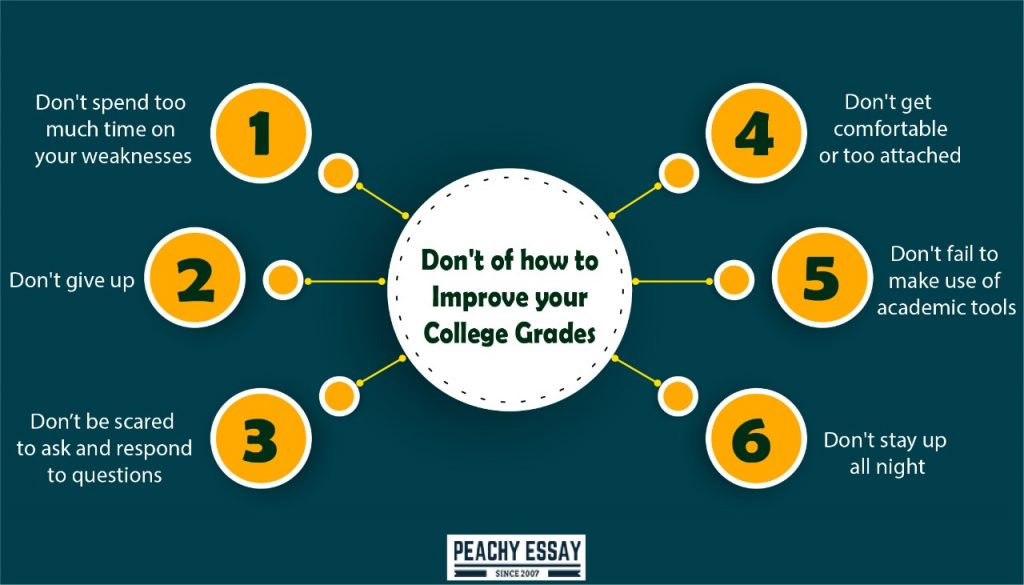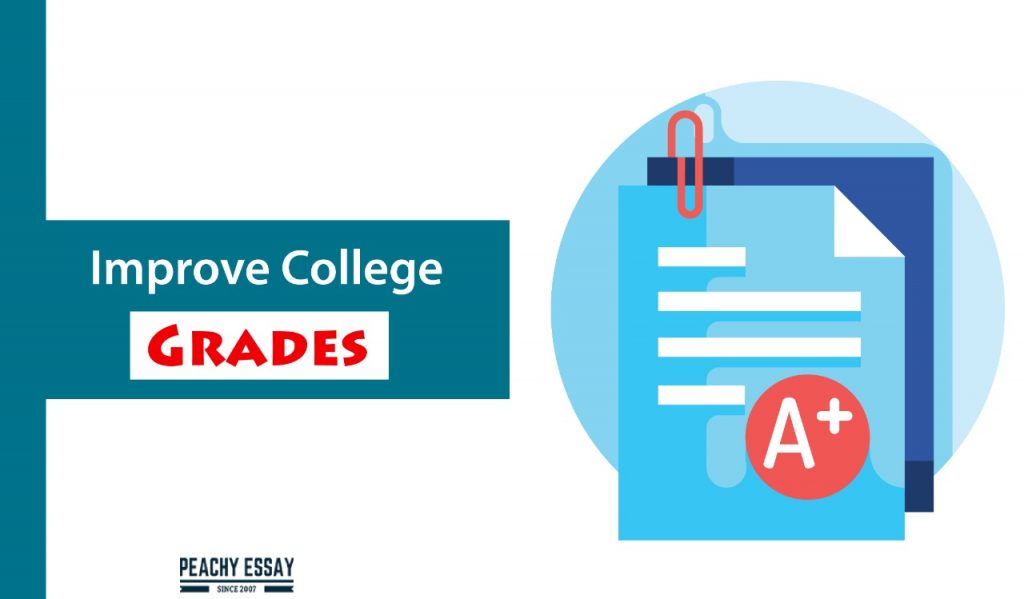Every college student desires to perform well academically. However, not unless you are an autodidact or a genius, you will need to put in some effort and make a couple of sacrifices to achieve impressive grades. Although studying more may be helpful, the entire process of improving your college grades is not that simple. Sometimes, you might be tempted to feel like you are not making any progress. On the same note, although studying for long hours could aid you in getting better grades, it is not always a guarantee. If you are studying using the wrong techniques, you may have difficulty improving your performance. Most college students spend a significant amount of their schooling studying using the same old routine, which is not a good thing. College life is very different from that of high school. Therefore, students must be willing and ready to let go of their lousy study habits. It is a fact that every day, college students earn impressive grades while studying for less duration. This article will discuss the don’ts of how to improve your college grades.

Don’t spend too much time on your weaknesses
By the time you are in college, the chances are that you already know your strengths and weaknesses. To improve your college grades, you need to identify the areas that you need to be assisted. For starters, you can consider looking at your grades and thereafter, check why you are earning low grades. If, for instance, you are not performing well in literature and writing courses, you can try brushing up your writing skills. The most important thing is to assess your strengths and weaknesses and devise ways to improve your shortcomings.
Don’t give up
I can assure you that you will never attain success until you fail a couple of times. Every winner, at some point in their lives, failed a couple of times. Failing teaches an individual the invaluable lesson that a person does not always get what they want and that being right does not necessarily mean that you will win. Instead of giving up and perceiving failure negatively, you should be optimistic and start seeing things with a positive mindset. As a student, it is expected that you are encountering a lot of obstacles. For instance, you may be struggling to balance attending your lecture sessions, completing your assignments, working, and still sparing time for your friends and family.
Don’t be scared to ask and respond to questions
Always ask questions in class whenever you feel like you have not clearly understood a concept. On the same note, pay attention and respond to the questions the lecturer may ask while teaching. You should ensure that you understand the concepts in class and not be scared of asking questions since someone else may have the same questions as you do. If you are experiencing difficulties processing information and maybe you are shy, you should not worry. Instead, you should make time and meet with the professor, or you can send a mail containing your questions to the lecturer.
Don’t get comfortable or too attached
Are you the kind of student that gets comfortable after you accomplish your set target? Or are you those people who always work hard to attain more goals and better yourself? Well, if you want to improve your grades, you should never be satisfied with what you’re scoring regardless of whether you are performing well or not. At times, as a student, you may think that you cannot live without electricity, a car, food, or even some friends. The truth, however, is that it is entirely possible to live without all those things. When you are going through a difficult situation, instead of feeling sorry for yourself, use it as a motivation to develop solutions to what you are going through.
Don’t fail to make use of academic tools
In the ancient days, scoring impressive grades was an uphill task since almost everything was done manually. Students spent too much of their time calculating their GPA scores, writing quality thesis statements, and striving to ensure that their work was plagiarism-free. A lot of time would be spent on studies alone, not forgetting that an individual also had to spend time with friends, do their hobbies and rest. The pressure to perform well academically would subject most college students to too much pressure. Most students would fail to score impressive grades because of miswriting their bibliographies. However, with a bibliography generator, students can use less duration to come up with well-written bibliographies. Students should make use of online academic tools.
Don’t stay up all night
College students think it is okay to stay awake all night studying for exams, handing out with friends, or partying. The truth is that staying awake all night leads to sleep deprivation, which is not suitable for both emotional and physical well-being. On the same note, getting a continuous sleep of eight hours may seem impossible to most college students. Whether you are watching a film on Netflix, cramming for an examination, or waiting to go on a trip, always ensure that you get enough sleep. Lack of adequate sleep may deprive your brain of the chance to process information, decrease your motivation, and make you moody.
Although it is true that improving academic performance is not a walk in the park, with the right mindset, there is no doubt that you can improve your college grades. You should also strive to have patience and be persistent. Always consult or seek assistance in the areas you feel stuck or confused. Finally, you should never think of giving up regardless of the challenges you may be facing. So many students are making these mistakes without them realizing it. Hopefully, by reading this article, you will have a better understanding of some of the things you need to avoid doing so as to improve your academic performance.




